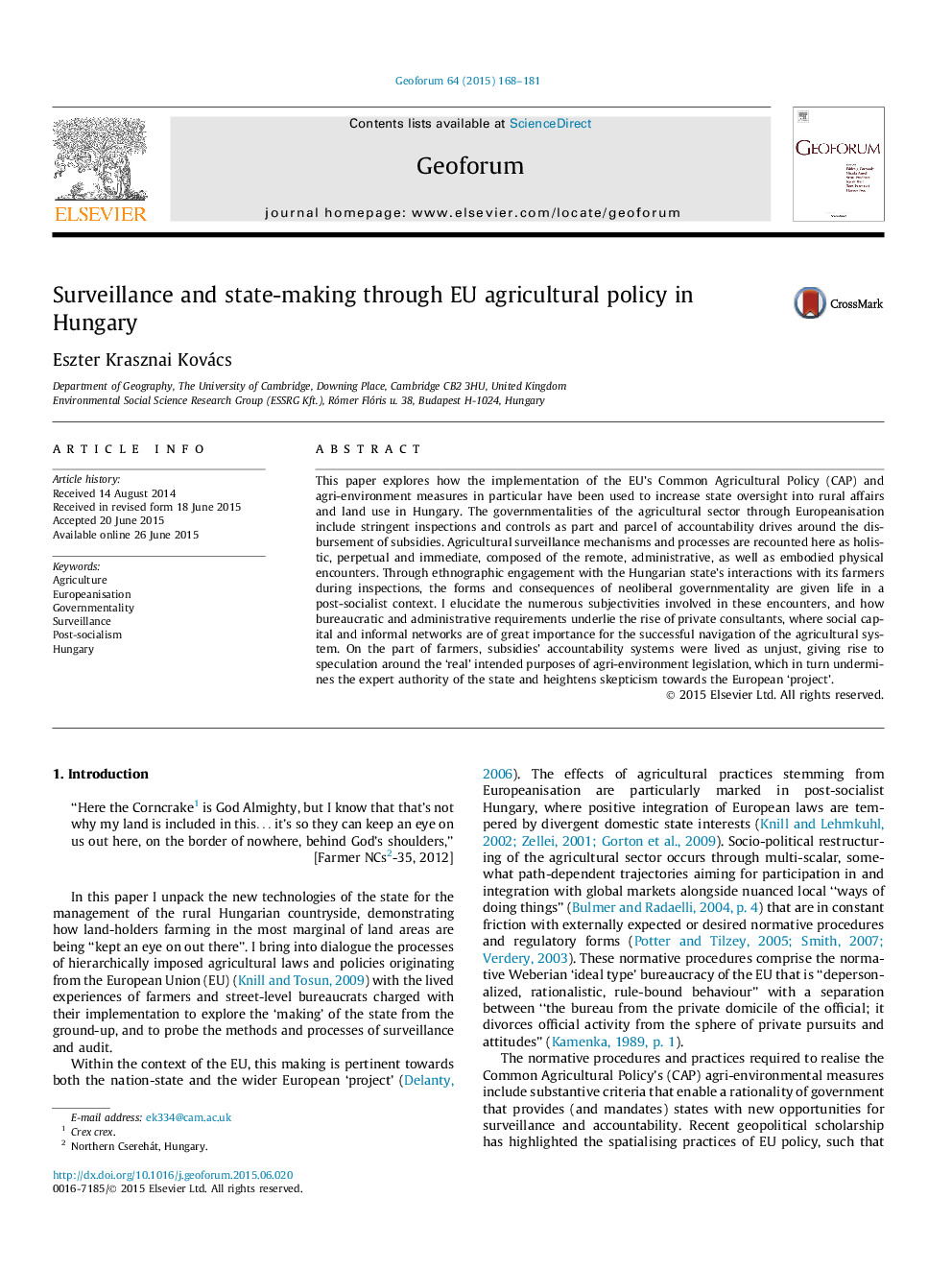| Article ID | Journal | Published Year | Pages | File Type |
|---|---|---|---|---|
| 5073680 | Geoforum | 2015 | 14 Pages |
â¢'Mundane' agri-environment inspections processes are explored in Hungary.â¢Inspections consist of administrative and physical checks, and surveillance.â¢Ethnography demonstrates subjectivities on the part of street-level bureaucrats.â¢Consequences for agriculture, the state and the European Union project are discussed.
This paper explores how the implementation of the EU's Common Agricultural Policy (CAP) and agri-environment measures in particular have been used to increase state oversight into rural affairs and land use in Hungary. The governmentalities of the agricultural sector through Europeanisation include stringent inspections and controls as part and parcel of accountability drives around the disbursement of subsidies. Agricultural surveillance mechanisms and processes are recounted here as holistic, perpetual and immediate, composed of the remote, administrative, as well as embodied physical encounters. Through ethnographic engagement with the Hungarian state's interactions with its farmers during inspections, the forms and consequences of neoliberal governmentality are given life in a post-socialist context. I elucidate the numerous subjectivities involved in these encounters, and how bureaucratic and administrative requirements underlie the rise of private consultants, where social capital and informal networks are of great importance for the successful navigation of the agricultural system. On the part of farmers, subsidies' accountability systems were lived as unjust, giving rise to speculation around the 'real' intended purposes of agri-environment legislation, which in turn undermines the expert authority of the state and heightens skepticism towards the European 'project'.
